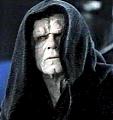As a bit of an amateur military historian, I have always held the Germans in high regard when it came to the subject of leadership. Erwin Rommel might be the best example of leadership in wartime. In contrast to other fronts during WW II, the North African campaign is often characterized as "the gentleman's war." Rommel's leadership style was forceful--in The Infantry Attacks he threatened to shoot a soldier on the spot when the individual refused to partake in a trench raid. In the desert campaign, Rommel drove his men mercilessly, but he always led from the tip of the spear, enduring the same privations as his men. In Knight's Cross, Rommel recounts three weeks of continuous battle when at the end, even he could not motivate his men to continue the offensive.
When Rommel was recalled to mainland Europe to prepare defensive positions, he was a whirlwind of energy and activity. Upon realizing the war was lost, Rommel helped launch the plot to kill Hitler. For that, he paid with his life. I consider Rommel a role model and example of exemplary leadership. In combat, there was none better. When it came to honor and pragmatism, he was peerless.
So, here's my question: Is there any difference between the office corps of the United States Army as opposed to the Wehrmacht? Was the Prussian tradition of producing military leaders substantially different than the United States? And finally, what was it that made the German officer corps so effective?
I would like to know what we can learn from the WW II German officer leadership that could help the U.S. Army become even better today.
One final thing. Being rather young, I have never known "Mad" Max Thurman other than from stories. I'm sure many who are a part of this forum have served/interacted with the General. Does his style of leadership have merits? I've heard he "jacked people up" as a way of doing business because he understood that enacting change within a large organization is extremely difficult. He assumed (I'm recalling peoples' comments who served under him) that any Army organization had issues and the best way to deal with them was to assume that nothing worked. When, his underlings demonstrated competence, he threw money at them so they could continue to do what they did best. Does any of this sound familiar to SWJ followers? Was he a largely peacetime Rommel?






 !
!


Bookmarks